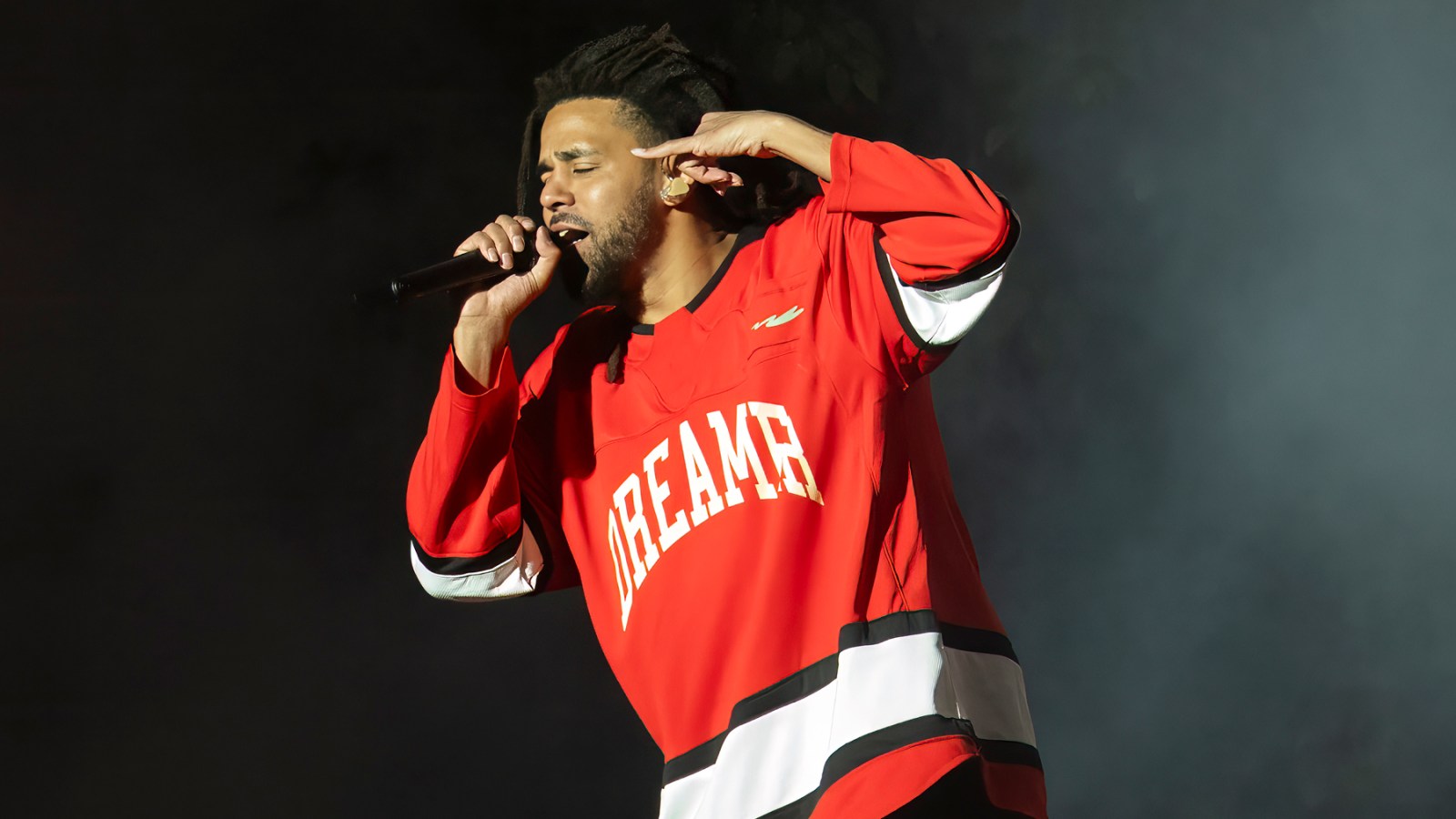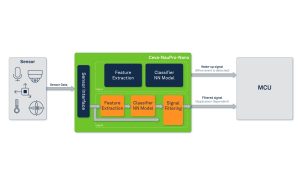As J. Cole put a bow on this year’s Dreamville Festival, he worked an apology heard-’round-hip-hop into the introduction to one of his biggest and most sentimental songs, “Love Yourz.” “The past two days have felt terrible,” he said, earnestly admitting he’s lost sleep over “7 Minute Drill,” his nuanced but ill-received jab back at Kendrick Lamar for dissing him and Drake (mostly Drake) on Future and Metro Boomin’s “Like That.”
On stage, Cole explained that “Love Yourz” signified a turning point a decade ago, one where a spiritual enlightenment — “I got more in tune with God,” he says — helped him release the public pressure and fear that clouded his climb to the top. “I damn near was thinking about and listening to people’s expectations of me and then responding off of that,” he said of that time.
He doesn’t specify what, but condemns the “goofy type shit” he was doing ahead of “Love Yourz.” Well known in Cole’s lore is a prime example of his battle with expectations: the story of his 2013 track “Let Nas Down,” where he bemoaned the pressure to make a pop-rap hit that shaped his debut single, 2011’s “Work Out” — which Cole later learned that his idol Nas found beneath him (to Cole’s credit, it did its job as a catchy introduction to the once underground MC and he shined as the song’s producer, too). He explains that in making “7 Minute Drill,” he deviated from the past decade of running his own race to satiate a bloodthirsty crowd of rap fans — including people close to him — and ended up with “the lamest shit I ever did in my fuckin’ life.”
As a Cole fan, I didn’t need “7 Minute Drill,” but I enjoyed it — his willingness to keep a rap beef about rap, his invocation of a deeply apt meme, his constant desire to both flex and give flowers. He’s gotten sharper, smoother, and more at ease over the course of his discography. I was most excited that “Drill” dropped as a part of an entire body of work — Might Delete Later, a surprise album and his first since 2022’s D-Day: A Gangsta Grillz Mixtape with his label. After an uncomfortable celebration of Dave Chappelle thriving at Netflix on the back of transphobic specials on the Might Delete Later intro “Pricey,” he completely lost me at “Pi,” a track some see as also conniving towards Lamar by featuring a standout (and unrelated) verse from his longtime collaborator and former labelmate Ab-Soul (as well as one from actual battle rapper Daylyt).
On it, Cole raps: “His album dropped, it was trash/I litter it like I can’t spell it/Is you the demon or is that demeanor for ‘Gram? Tell us/They plead the fifth, I’m seeing hints of a trans fella/In cancel culture’s vicinity, he’s no killer, trust me/Beneath his chosen identity/There is still a pussy, period.”
I wish I could say that using trans identity to insult someone, diminishing it as choice, and then dismissively reducing it to sex organs was beneath Cole — but it’s also indicative of who he’s been throughout his career. On 2013’s Born Sinner, the same album where he pined for Nas’ approval, he repeatedly hurled a homophobic slur on “Villuminati” in a convoluted rap urging folks not to be sensitive about him using the term. On the same album, he slipped transphobic taunts evoking the sexuality of former Hot 97 personality Mister Cee in “Forbidden Fruit.” Fast forward to 2021, and he opens his last album, The Off-Season, with the dig, “Check your genitalia, pussy-niggas bleedin’ on yourself.” Cole doesn’t seem overtly motivated by fear or hatred, but over and over again, he uses transness, gayness, and ideas of womanhood as sites of shame. “Pi” is just the wackest thing he’s done of late. Why hasn’t Cole’s path of enlightenment also led him to better gender politics?
That’s not to say he has not tried — but it is to say his efforts are often sullied. Born Sinner boasts “Crooked Smile,” a touching ode to self-acceptance where he empathizes with women under pressure to covet their appearance and find love in an excruciating landscape. But then, his arguably-biggest hit, 2014’s “No Role Modelz” (the song he closed Dreamville Festival out with for at least the last two years), is a reductive lambasting of “hoes” versus “sisters” navigating that same terrain. In 2020, he recognized Noname as a “leader in these times” for her social justice efforts, but only after the two exchanged targeted tracks following her coded critique of “top-selling” rappers sitting out of the action and discourse around police brutality that spring. Cole responded with “Snow on Tha Bluff,” which criticized her tone and approach. They had spoken privately in between her tweet and his song — he didn’t mention the track. Noname then clapped back with her own, but later apologized for it. He didn’t. (They’re cool, though.)
In his “Middle Child” era, he importantly recognized that traumatized men were “hurting our sisters,” but he did so as he divisively took up for Tekashi 69, Kodak Black, and the late XXXTentacion — rappers with disturbing allegations (and in the case of the former two, guilty verdicts) of gender-based violence, including sexual assault. In his own work, he’s built a small library of bars pointing to his romantic faithfulness and duty, but his attitude towards women and themes of sexual conquest on Might Delete Later are ill-fitting and regressive. They come as he makes his most fervent alignment with Drake at a time that also finds the Toronto rapper at his most gender–antagonistic.
As Cole described his regrets around “7 Minute Drill,” he also detailed a climate that fanned the flames. “I don’t know if y’all can feel that, but the world wants to see blood,” he said, speaking to our notably conflict-driven, controversy-powered environments, both online and off. Queerphobia, transphobia, and misogyny are still powerful norms, too, despite the strides visibility movements against them have made. It’s commendable that as Cole apologized to Lamar, he framed himself as a work-in-progress and product of intense and intentional growth. It’s unfortunate that the ways he’s caught people unlike him in his rap crossfire hasn’t also warranted an apology.



